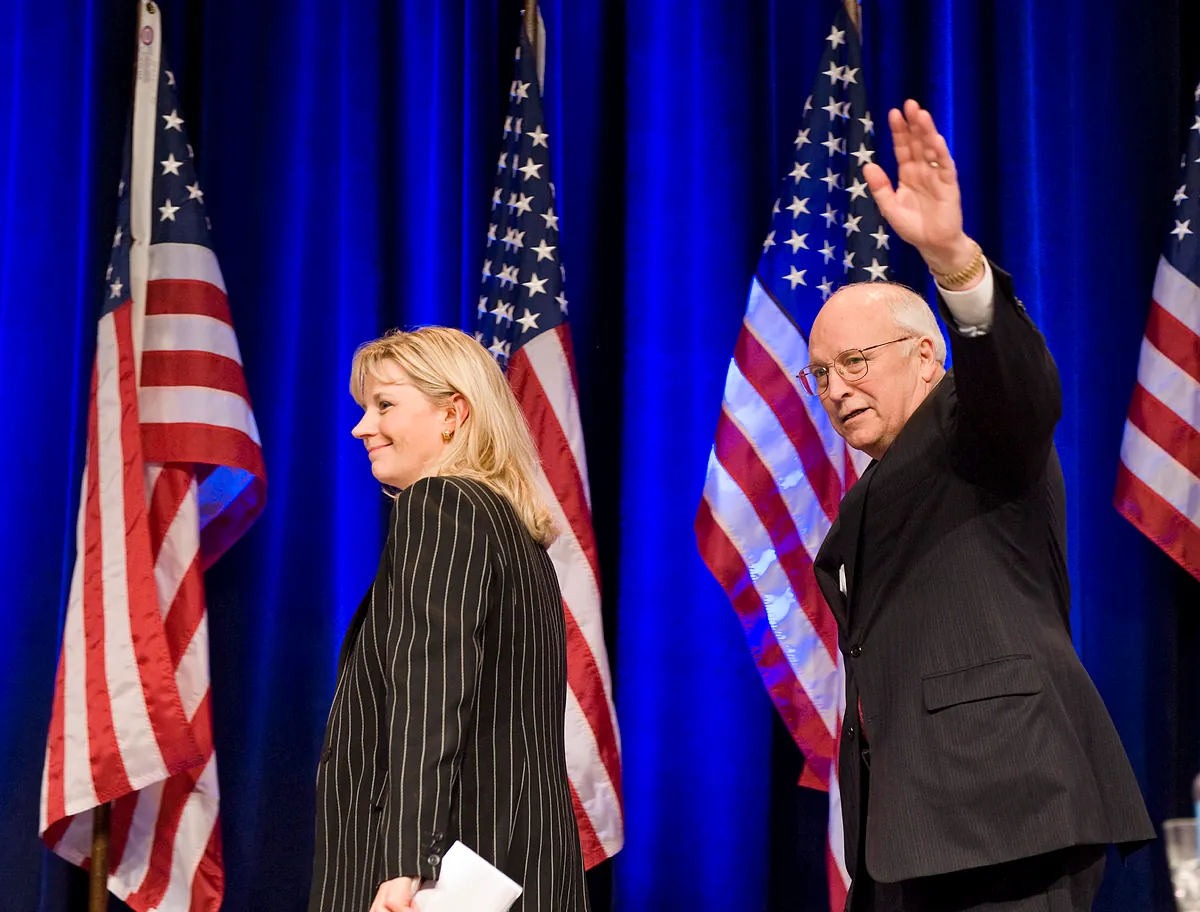(I received the news of Dick Cheney's death in Cairo, finishing a conference and heading to the newly opened museum. This is a hurried chronicle of memories and reflections.)
In Washington, nicknames are more sharp than humorous. Darth Vader was the one earned by Dick Cheney. It wasn't given to him by an adversary, but rather caught on through popular"wisdom." It reflected the man who operated in the shadows, the ruthless strategist behind the throne. The allusion to the Star Wars character ironically encapsulated the fear and fascination that Cheney inspired, even among his own people.
Vice President under George W. Bush and architect of much of the post-9/11 security architecture, Cheney embodied a conviction so American, and so foreign to our European sensibilities: authority does not need justification. Duty is not up for debate; it is fulfilled.
I met him in the White House offices, as Foreign Minister in the government headed by José María Aznar. Those meetings allowed me to decipher his logic; the logic of someone who doesn't seek to convince, but to decide. Cheney listened without interrupting, with a dry politeness that could be disarming. When he finally spoke, he did so slowly, with short, definitive sentences. Around him, a kind of sonic void would then be created; the silence imposed by those who truly hold power.
His control of the institutional machinery was absolute. He didn't need visibility; his influence was structural. In a political culture that rewards brilliance, Cheney represented dark efficiency: the ability to pull the strings without leaving a trace. The deep state had a name and a face.
I recall a particularly tense meeting in which the discussion about Iraq became entangled in legal and strategic nuances. Cheney listened without any expression, which could be perceived as intimidation. In the end, he simply said,"I appreciate your clarity, even when I disagree." A curt phrase, seemingly devoid of affection; his way of ending things and, in his own way, acknowledging his position.
(It was also during those years that the person who mattered most to him in his private life began to become evident: his daughter Liz. Even during his vice presidency, Cheney saw her as his natural inheritance, the continuation of his public commitment. In Liz, he found the vision of the mentor who knows he is being relieved of his duties and, at the same time, being reproduced.)
Over time, I came to understand that Dick Cheney embodied an ethic of duty that has been diluted in politics: the conviction that governing means making decisions alone. Liz, a crucial figure in her later life, inherited that same awareness of power, but transformed it; a moral fiber that led her, years later, to confront Trumpism from within the Republican Party.
Liz and I met in Washington when tensions hadn't yet eroded civility. I was then a former member of the Spanish government, returning not as a member of the government, but because of the selection process for—and subsequent appointment to—the World Bank. I particularly remember a dinner at the Observatory, the Vice President's residence, with her and her father (who, in his own way, honored the relationship Spain had maintained with the United States before José Luis Rodríguez Zapatero came to power). Frank, sometimes sharp, always substantive, Liz shares with her father a dry intelligence, surgical precision, and a serenity that doesn't preclude firmness. But where her father projected power—naked power—she projected conviction.
In her, power becomes responsibility. Her challenge to Donald Trump, her defense of electoral truth, restored to the Cheney name a dignity that many had given up for lost. She was—and remains—an exception: the dissident who championed civic duty over political calculation.
The words of a high-ranking Republican official, spoken in the days leading up to the invasion of Iraq, resonate today:"Cheney believes that history is written by those who act, not by those who hesitate." Harsh, but accurate. It encapsulates the understanding of government as action, so characteristic of the post-9/11 United States.
Years later, while standing with Liz Cheney and Condi Rice, that phrase resurfaced with a different meaning. We were discussing the erosion of power. Condi, with her characteristic pragmatism, observed:"Power wears you down, even if you don't wield it." Liz smiled slightly, paused for a measured moment, and replied:"Only if you don't know why you have it, or if you seek it." A lesson that has resurfaced in her interventions when she was cornered within the Republican Party. It encapsulates the reach of political"sagas," a very American tradition. Dick and Liz Cheney are two sides of the same coin: power as an exercise and duty as a manifestation of patriotism.
But in my experience, there's an anecdote that humanizes the above. A minor, almost domestic image. During the second Bush administration, I attended a typical dinner party with a long table, dressed up like a hotel; a dozen women gathered around Condi Rice (then Secretary of State). I was seated next to Liz Cheney, who had given birth a few months earlier. From under the tablecloths came peculiar little noises, like purring. I even thought maybe a cat had gotten in (but it didn't seem right). When she got up from the table, Liz bent down and, quite naturally, took out a small basket with her baby, whom she had clearly been rocking at her feet in that enormous"tent." I saw then, in a way, the continuation of her father's legacy and, at the same time, the flip side of the tough cookie: a modern-day mother.

